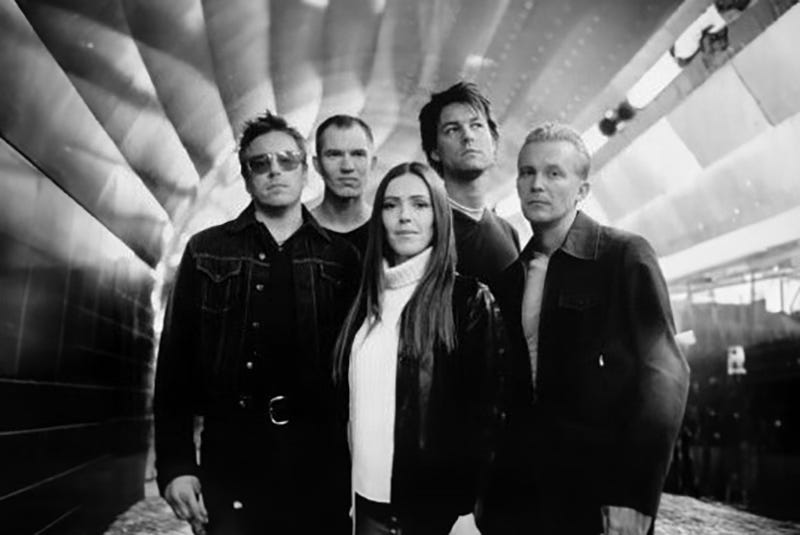Formation and Early Years
Whale, an alternative rock group from Sweden, was active between 1992 and 1999. The band's formation stemmed from a collaboration between Gordon Cyrus and Henrik Schyffert, who met while working on a commercial. They were soon joined by Schyffert's then-girlfriend, Cia Berg, as the lead vocalist. Whale's early style was marked by a unique blend of alternative rock, experimental rock, electronic, and trip hop elements, distinguishing them in the music scene of the 1990s.
Lars Lindblad suggested this artist for a future Dig Me Out podcast episode. Each month, our Patrons are presented with a selection of albums suggested by listeners and asked to vote for their favorite. The album with the most votes is given another minute in the spotlight. Vote and share your thoughts.
Musical Style and Evolution
The band debuted with the single "Pay For Me," followed by their first album "We Care" in 1995. This album, released under Virgin Records, was noted for its sexually explicit lyrics and an artistic blend of various musical elements like hip-hop beats, heavy-metal guitars, and rock and roll tempos. Their style was distinct and original, often drenched in gloomy atmospheres. The club hit "Hobo Humpin' Slobo Babe" from this album became notably popular.
Their second album, "All Disco Dance Must End in Broken Bones" (1998), showcased a departure from the trip-hop focus of their earlier work. This album featured more varied sounds, including elements of jazz, dub bass, and electronic noises, with a technique characterized by quick and daring metamorphoses in melody and style.
Discography and Notable 90s Albums
"We Care" (1995, Virgin Records/Hut Records): This album made an impact with its frank lyrics and innovative music blend. It included hits like "Hobo Humpin' Slobo Babe," which achieved top chart positions in several European countries and the US Modern Rock Tracks chart.
"All Disco Dance Must End in Broken Bones" (1998, Virgin/Hut): This album represented a more varied musical approach, with sophisticated tracks like "Crying at Airports."
Influence and Legacy
Though Whale disbanded in 1999 after releasing the single "Deliver the Juice," their influence during their active years was significant, especially in the European market. They toured with notable artists like Tricky, Blur, and Placebo. Post-breakup, members pursued various careers, with Schyffert finding success in television and comedy, and Cyrus in international audiovisual marketing and design.
Critical Reception
Whale's work in the 1990s was met with mixed critical reception. Their bold and original musical style, blending various genres, was often praised. However, their albums received moderate ratings, reflecting a recognition of their unique approach but also highlighting certain shortcomings in consistency and cohesion in their albums.
Conclusion
Whale's journey in the 1990s music scene, though brief, was marked by their experimental approach, blending diverse musical styles and themes. Their unique sound and audacious lyrical content contributed a distinctive voice to the alternative rock and electronic music scenes of the 90s.
Sources
Wikipedia
AllMusic
Scaruffi.com





S t i l l... love, Love, L💚VE WHALE! Not a 'good' but Great Call!!! Stay Blessed & Beautiful All p.e.r.i.o.d. #ShoeGeezer
\m/\-.-/\m/
✊🏼 It's Thee thing, that Finally made me hit the Dancefloor (aft seeing the vid aired) on the JumboTron @ Numbers Houston,TX. 🤘🏼🖤💯